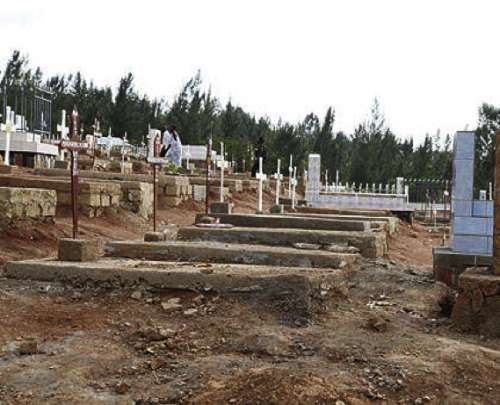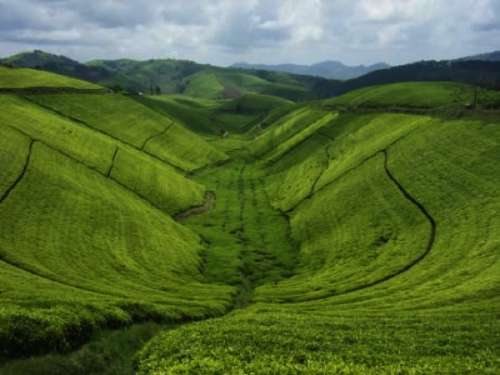|
|
Ntagasozi gatahamba. (Rwanda) Kaburi yaweza kuwa mahali popote. (Swahili) Tout lieu est un tombeau. (French) Every hill is a burial site. (English)
|
Rwanda (Burundi, Democratic Republic of Congo [DRC]), Kenya,Rwanda, Tanzania and Uganda) Proverb
Background, Explanation, History, Meaning and Everyday Use
The main people of Rwanda and Burundi, the Banyarwanda and Barundi respectively, are basically divided into three traditional classes — the Hutu (the agricultural tilling class), the Tutsi (the cattle-keeping, royal, upper class), and the Twa (the minority and least socially significant class). The Hutu and the Tutsi live alongside each other, speak the same languages, embrace the same culture and intermarry. The class or sub-class to which one belongs is quite flexible. One can move upward or downward in social status depending on circumstances such as allegiance, marriage, enrichment, impoverishment or dispossession. The fertility rates and the migratory rates are so high that there are significant populations of the Banyarwanda and Barundi in the neighboring countries of DRC, Kenya, Tanzania, and Uganda. These ethnic groups have strongly influenced and inspired the cultural traditions of many ethnic groups in East and Central Africa, and they have even impacted the politics of the region.

The Hutu people are said to come from the southern parts of Sahara Desert in the 7th Century A.D. A Hutu person believes strongly in his or her traditional culture such that one’s homestead is inseparable from him or her, meaning that he or she is to be buried in the land of one’s ancestors. The life of each Hutu is linked to the daily farming activities. In the evening the proverbs, songs, dance, stories and myths are shared with members of the family. The religious and linguistic aspects are important in their anthropological settings.
Biblical Parallels
Daniel 12:1-3: “Those who lie sleeping in the dust of the earth many will awake.”
2Corinthians 5:1, 6-10: “We have an everlasting home in heaven.”
In reference to the Rwandese, and especially for the Hutu people, everyone is called to stay in his or own homestead all one’s life. This means that it is the place where one is born and one is buried. However, due to some circumstances and other aspects one may be buried outside the home of one’s ancestors.
Contemporary Use and Religious Application
The proverbs in Rwandese culture are the profound messages that the Rwandese such as the Hutu Ethnic Group uses in their daily lives. The practices of norms, rules, precepts and customs are very fundamental to these people. Whoever does or goes contrary to what Hutu tradition dictates, that individual member is a prodigal son or daughter. Life is mostly based on religious values. The living Hutu people are in communion with their ancestors. It should be noted that traditionally the ancestors are the ones who lived devout and religious lives and are in good relationship with the gods and the creator God and the members of one’s clans and families. Consequently, communion between the departed ancestors and living people is to be emulated by Hutu people and the Rwandese in general.
NOTE: This is Proverb No. 51 in A Collection of 100 Kinyarwanda Proverbs by Cyprien Ntambara. Nairobi: African Proverb Working Group, 2014.
Cyprien Ntambara
Nairobi, Kenya
Cellphone: 0722814134
Email: ntambaracyprien@gmail.com
Photographs selected by:
Cephas Yao Agbemenu
Department of Art and Design
Kenyatta University
P.O. Box 43844
Nairobi, Kenya
Cellphone: 254-723-307992
Email: cyagbemenu@yahoo.com
![January 2014 – Every hill is a burial site. Rwanda (Burundi, Democratic Republic of Congo [DRC]), Kenya, Rwanda, Tanzania and Uganda) Proverb](https://afriprov.org/wp-content/uploads/2020/02/logotrans.png)

